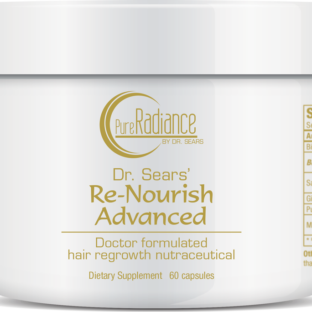
Big Pharma has made a fortune on women with the blues. Most doctors are quick to offer not just one but multiple pills for everything from a low mood to major depression.
The market for antidepressants and antipsychotics is $24 billion just in the US. Close to 15% of the population now takes these drugs including one in four women in their 40s and 50s.
But here’s the ugly truth…
Antidepressants don’t work.
In fact, you’d be better off taking no drugs at all. In one study, 65% of depressed patients who took nothing experienced complete recovery in around three months. But those taking the pills took nearly twice as long to recover.1
And a stunning 86% of patients get at least one side effect from the drugs.2 I’m talking about serious things like liver damage, weight gain, sexual dysfunction and reduced brain function.
I don’t prescribe these drugs to my patients. When a patient comes to me with symptoms of depression, one of the first things I do is check their thyroid.
You know by now that your thyroid is a butterfly-shaped gland in the front of your neck. It produces two thyroid hormones — thyroxine (T4) and triiodothyronine (T3).
When thyroid hormones are low you could become depressed. That’s because thyroid hormone receptors are not just in your neck. They are also concentrated in various parts of the brain.
In one study from France, low thyroid hormone was found in 52% of people with resistant depression.3
Other research shows women who took thyroid hormone improved their symptoms of depression when antidepressants failed. One study found that T3 was just as effective as standard drugs in relieving depression — without the side effects.4
Millions of women in America have been diagnosed with low thyroid function. And millions more have it and don’t even know it.
For those who do get a diagnosis of hypothyroidism, mainstream medicine’s answer is…
Another pill!
It’s a synthetic hormone drug called Synthroid. I don’t treat my patients with chemical hormones. Natural hormones are more effective, safer and generally less expensive.
But even before taking natural hormones, you might want to try the simple and natural thyroid boosters I use with my patients. I find them to be very effective for low thyroid symptoms, including depression.
3 natural thyroid boosters
1. Guggul (commiphora mukul). This extract of the sap from the Indian myrrh tree has powerful compounds called guggulsterones. Studies show these compounds significantly increase the amount of iodine the thyroid absorbs.5That’s important, because the more iodine your thyroid can take in, the healthier your thyroid function will be.
Guggul is available as tablets, capsules, powders and liquid extracts. Look for a supplement standardized to at least 6% guggulsterones. I recommend a dose of 300 — 400 mg of guggul two to three times a day for a cycle of about six weeks. Then recheck your temperature.
2. Iodine. This is your thyroid’s number one nutrient. You need it to make T4 and T3.
It’s difficult to get enough iodine through food alone. That’s why I recommend supplements. Look for Iodoral® tablets. They contain 5 mg of iodine, and 7.5 mg of potassium iodide. Take one or two tablets a day.
3. L-Tyrosine. Your thyroid uses this amino acid as a primary nutrient, along with iodine, to make thyroid hormones. You can get it from protein-rich foods, or take it as a supplement. 500 mg a day is a good amount for thyroid health.
To Your Good Health,
![]()
Al Sears, MD, CNS
1. Posternak, Michael A. MD; Solomon, David A. MD; Leon, Andrew C. PhD; et al. “The Naturalistic Course of Unipolar Major Depression in the Absence of Somatic Therapy.” Journal of Nervous & Mental Disease 2006 – Volume 194 – Issue 5 – pp 324-329.
2. Kelly K, Posternak M, Jonathan EA. “Toward achieving optimal response: understanding and managing antidepressant side effects.” Dialogues in Clinical Neuroscience. 2008;10(4):409-418.
3. Sintzel F, Mallaret M, Bougerol T. et al. Potentializing of tricyclics and serotoninergics by thyroid hormones in resistant depressive disorders]. Encephale. 2004 May-Jun;30(3):267-75.
4. Joffe RT, Singer W, Levitt AJ, MacDonald C. “A Placebo-Controlled Comparison of Lithium and Triiodothyronine Augmentation of Tricyclic Antidepressants in Unipolar Refractory Depression.” Arch Gen Psychiatry. 1993;50(5):387-393. 5. 5. Panda S, Kar A. “Guggulu (Commiphora mukul) potentially ameliorates hypothyroidism in female mice.” Phytother Res. 2005;19(1):78-80.








